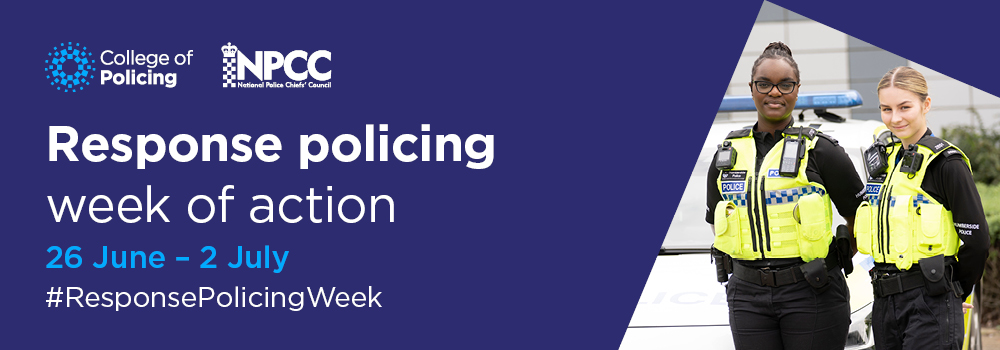Response policing is the backbone of the UK’s police service. Apart from being one of the first responders, response officers go to unimaginable lengths to ensure the safety of the members of the communities they serve and uphold the law.
Events such as the College of Policing’s Response Policing Week of Action 2023 go on to reinforce the indispensable contribution of response officers in policing, and the hard work and bravery they exhibit when attending each and every call.
National Chair of the Police Federation of England and Wales (PFEW), Steve Hartshorn, said: “Response policing is at the heart of everything that officers do every single day. Response Policing Week of Action 2023 celebrates the very best in policing, including the dedication and bravery of rank and file officers.”
Response policing involves officers facing challenges on the ground every day and dealing with unique, and often, unpredictable events. An officer never knows what their day will look like, and the demands they will face in the line of duty.
Mr Hartshorn further said: “Police officers attend a variety of calls, which are often dangerous and sometimes emotionally demanding.
“Our officers have done extremely well by managing the evolving world of crime while putting themselves at risk for the safety of the people they serve. They silently battle away their ordeals affording topmost priority to attending to the needs of members of the public.
“We have seen extraordinary feats of bravery and highly commendable policing work done by response officers up and down the country.
“It is unfortunate that response officers in many forces are forced to work with low officer numbers and outdated equipment. It is encouraging to see awareness being created about the various aspects of response policing by such initiatives."
Earlier this year, the Metropolitan Police Service (Met), the UK’s largest police force, initiated Op Stabilise, which is designed to augment response policing on the ground by providing dedicated leadership and upgrading response teams with more officers and resources. The initiative is based on the Met’s findings that response officers are facing increased demands of local policing issues such as neighbourhood crime, domestic violence calls and digital policing. It is important for more forces to adopt initiatives such as Op Stabilise to ramp up response policing.
One of the greatest dangers response officers face in the execution of their duties is assault from the very members of the communities they serve. The assaults not only cause them physical harm but also impact their mental health.
Assaults on police officers are absolutely unacceptable and have no place in society. National Police Wellbeing Service, Oscar Kilo, in collaboration with policing organisations such as the PFEW, launched Op Hampshire more than a year ago to change the culture in support of police officers considering the impact of assaults and reacting accordingly to the individual’s needs. It provides strategy and process support, and guidance, to forces to follow in response to assaults on police officers.
Op Hampshire has become a priority workstream in the police service and was recently adopted by UNISON.
Mr Hartshorn added: “Officers accept to do what they do with the knowledge of the dangers of the job. But they certainly do not sign up to get assaulted in the line of duty. The wellbeing of officers has never been more crucial, especially with their battles with the ongoing cost of living crisis.
“Our forces also need long-term sustained funding from the Government to improve resources, training, and support for policing operations.
“The Federation, in many statutory and workstream meetings with policymakers and Government heads, raises members’ concerns and real-life issues. This is backed by evidence so that we can negotiate, and influence decisions aimed at achieving the best for our members who strive against all odds to protect the people of our nation.”















